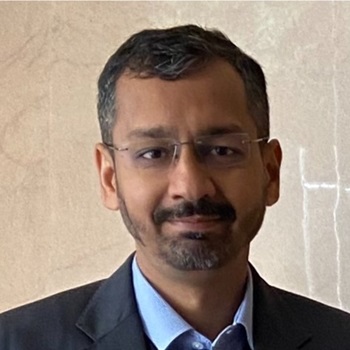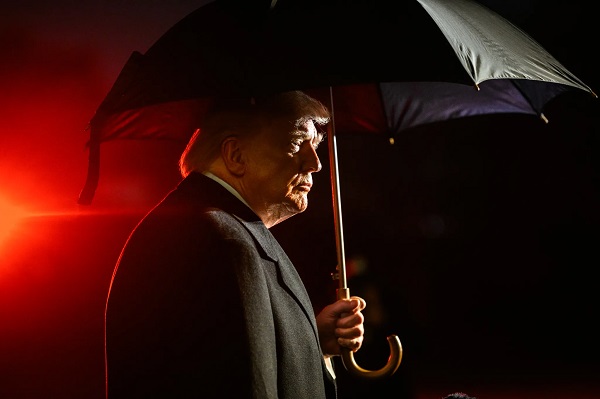.png)
May 8, 2025 at 6:39 AM IST
The world is quietly slipping into a new order of power. Not one defined by the rise and fall of nations or the calculus of military alliances, but by the formidable ascendance of a handful of digital overlords. These are not elected leaders, nor are they emissaries of the public will. They are private individuals with unimaginable wealth, wielding technological infrastructures that cut through the authority of governments and the sovereignty of borders.
The rise of these tech broligarchs has been nothing short of a silent revolution. This is not merely a tale of wealth accumulation or entrepreneurial success. It is a reconfiguration of global power, authority and governance. The moguls of Silicon Valley have moved from being the vanguard of innovation to becoming the architects of a digital empire that governs how the world thinks, speaks, works and votes.
They do not merely operate companies. They command ecosystems. Meta (formerly Facebook) influences the public discourse of over three billion users. Google determines the informational diet of entire populations, shaping what knowledge is accessible and what remains buried. Amazon dictates the logistics of consumption for billions, entrenching its presence not just in commerce, but in cloud infrastructure, artificial intelligence and surveillance technologies.
In this new world, data is not just the new oil. It is the new oxygen. The algorithms of these broligarchs determine what we see, what we buy, what we believe and how we feel. They influence elections and economic decisions alike. They curate reality itself. In this schema, privacy is no longer a right, but a product to be bartered, without consent. Surveillance capitalism has normalised the commodification of the individual. Personal data is harvested with precision, repackaged, and sold into systems that can predict and manipulate behaviour with disquieting accuracy.
The most disturbing part is not the breadth of this control, but its invisibility. These digital platforms promise empowerment and freedom, yet they quietly curate a social environment optimised for engagement through outrage, fear and division. What appears as a neutral tool for connection is, in fact, a sophisticated engine of emotional manipulation. The architecture of social media is not built to inform or enlighten, but to provoke and entrap.
Despite the social costs borne by users across the globe, these platforms continue to operate with unchecked freedom. The legal frameworks of most nation-states remain outdated and inadequate to deal with this scale and speed. Regulatory attempts often appear performative or futile. The broligarchs have mastered the art of lobbying, of forum-shopping jurisdictions, and of erecting legal moats around their empires.
The global tax regime is a prime example of this. While governments struggle with deficits and declining public trust, these tech giants optimise their profits through aggressive tax planning strategies that exploit the gaps between national laws. They base operations in tax havens, shift profits through subsidiaries, and sidestep obligations that ordinary enterprises cannot escape.
Meanwhile, their valuations continue to soar, buoyed by financial markets that reward dominance, not compliance.
What is most ironic is the duality they present. These broligarchs posture as libertarians, advocating for deregulation and individual liberty. Yet they are simultaneously constructing monopolistic infrastructures that control commerce, communication and cognition.
Their public commitments to freedom are often smokescreens behind which they erect digital strongholds—systems where they are the sole arbiters of truth, fairness and access.
Their influence is no longer confined to economic domains. They are shaping the political fabric of societies. Social media, once hailed as a tool for democratic empowerment, has become a mechanism for disinformation, populist mobilisation and ideological fragmentation. Platforms designed to give voice to the voiceless are now the loudspeakers of extremism and echo chambers of narrow-mindedness. The broligarchs, whether by intention or indifference, have become custodians of global public opinion, more powerful than traditional media or national broadcasters.
And they are expanding this power with unsettling confidence. The push into artificial intelligence is not merely a technological evolution. It is the next frontier of dominion. AI, though marketed as an enabler of innovation, is rapidly becoming the cornerstone of automated decision-making, predictive policing, behavioural scoring and algorithmic governance. With the United States accelerating its AI diffusion regime, these corporations are being crowned as the high priests of the next economic epoch.
Yet this concentration of influence is not accompanied by a corresponding increase in responsibility. The governance vacuum is glaring. National regulators are often reactive, fragmented and under-resourced. International organisations have proven sluggish, unable to coordinate frameworks that can meaningfully constrain these actors. The result is a terrain where the broligarchs operate with impunity, reshaping the norms of engagement, privacy, taxation and truth itself.
Some among them are no longer content with influencing society. They now seek to build alternatives to it. From floating libertarian cities to space-bound colonies, the vision is clear—a world beyond regulation, beyond democracy, beyond accountability. Projects like Prospera, invested in by Peter Thiel, offer a glimpse into the ideology at play: one that believes private capital can build societies better than elected governments, where the rules are written not by parliaments but by shareholders.
In such a world, sovereignty becomes abstract. National borders hold little meaning when a platform can influence voters in ten countries with one algorithmic tweak. Governments are reduced to negotiators, pleading for compliance or begging for infrastructure. The emerging reality is one of digital feudalism, where access to the internet, to knowledge, to jobs and to truth itself is governed not by the public interest but by the private whims of a few unelected men.
The question we must ask—urgently and unflinchingly—is whether democracy, individual autonomy and societal equity can survive such a profound asymmetry of power.
This is not a matter of competition policy. It is a matter of civilisational architecture.
The future is being written by the few who stand to benefit the most. And unless we redraw the frameworks of accountability, unless we reinstate the primacy of public governance over private infrastructure, we may well be witnesses to the coronation of the new emperors of the digital age.
Welcome to the future. Our new rulers are not kings. They are billionaires. And their reign has already begun.





